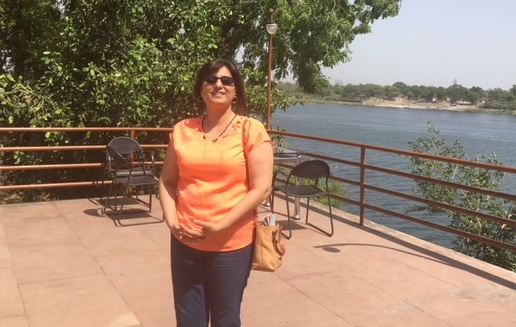By Christina Pires
A few years ago, Subhashish “Subs” Acharya attended a job fair in Boston, MA to film a documentary. Amongst a sea of tables and stations, he noticed a vendor who had over 150 people with disabilities crowding its post — all hoping to apply for a job with the company. Acharya then approached the vendor and praised him for opening his business to candidates with disabilities. The vendor said he wouldn’t be hiring anyone and he just wanted, “…for them to feel good and be included.”
The business man’s answer deeply disturbed Acharya, and in that moment, he recognized he wanted to help the disability community and make a real social impact. So, he became a disability advocate and created Project Starfish — an organization that has a work model that allows people with disabilities to learn leadership skills, practice social engagement, and cultivate their strengths. Business development was Project Starfish’s initial priority, with the core idea being to work with startup businesses. That meant teaching clients how to outreach, use the internet, research, and understand business lingo to get on board with a real-world company. For the past five years, Project Starfish has given Acharya’s clients a simulated experience of what a real-world workplace is like, training them to adapt to and work within it.
As Project Starfish grew, and as his other business ventures flourished, Acharya realized he needed to hire someone to manage the organization full time. So, the role of leader was given to disability advocate Nasreen Bhutta — who is visually impaired.
Bhutta’s involvement began in 2014 while she was taking an online course. A friend tweeted to her about the organization, piquing her interest with the nobleness of its cause. Two weeks later, she called and spoke with Acharya, who invited her to join the organization. She recalled her beginnings with Project Starfish stating that she, “…put together the HR Corner, which consisted of [simulated] job interviews and exit interviews” and created a recruiting course, called Training 1.0, with a Starfish colleague.
From there, Nasreen progressed “from HR to managing, to overseeing, and becoming sort of the right arm of Project Starfish.” Nasreen is now a certified recruiter and sourcer, for which she received a diploma. She also stated that the mentors of the organization have developed several projects, including Human Resources, Business Development, Social Media, The 60 Minute Initiative (a program run like 60 Minutes), and a few others.
Although Nasreen has seen many success stories over the years, she told the Disability Tribune that there was one that meant a lot to her as a mentor.
A gentleman from Maryland came to them for training and Bhutta noted that “he was shy and he had a stutter. He told us he wanted to learn skills to stand out.” He was also visually impaired, however it did not hinder his hunger for employment. According to Nasreen, he was a wonderful researcher, and, at the time, Starfish was engaging their clients in a virtual game with a company everyone in the community knew: BRC Race, a racing game. The clients played to learn new skills and also worked alongside a real company. One of the project tasks was working with people and much to her delight Nasreen exclaimed that her pupil “stuttered less and was more confident! It’s why we are always designing new projects, whether it’s a game, 60 minutes, social media marketing, or business development. We are teaching people skills that they can carry with them and use on any career out in the workforce.”
Project Starfish’s business model is an effective one, as evidenced by Bhutta’s success story and others like it. And while the organization is still training clients to enter the workplace, Bhutta points out that their coaching approach “has changed; it used to be that we would take on large groups of people and they’d become part of the organization.” That practice began in 2013; however, by 2017 they began to shift their process.
Bhutta recalled she had returned from India that year, and was striving to train more clients. However, she commented the new clients coming in for workforce training “were more skilled, and some owned small businesses, which they worked on from home.” All of the people at the end of training wanted more: they wanted employment. So instead of doing large groups, Starfish shifted to focusing on training the individual, creating a one-on-one session for customized training. Nasreen added, “Every business has to evolve and change in order to run a [sic] successfully, which is why we changed as well.”
The future is bright and full of opportunities for the organization. Bhutta announced, “[Project Starfish is currently] working on a couple of projects; we’ve partnered with The Sourcing Institute Foundation (TSI), and we also have an initiative going on in India working with NGOs (Start Up Business) and cancer care, as well as healing and holistic centers, which is ongoing. We are always looking to expand, for newer social causes to get involved with, and to partner up with new companies who focus on social and business impacts.”
To learn more or to become a client, visit the Project Starfish website at http://www.pstarfish.org/.
Christina Pires is an essayist who enjoys the simple things in life, like eating candy corn by pumpkin light on a cool Hallow’s Eve. She also loves reading, writing, drawing, painting, sculpting, and singing. You can follow her Facebook page here: https://www.facebook.com/TheCreativeBrewery/

